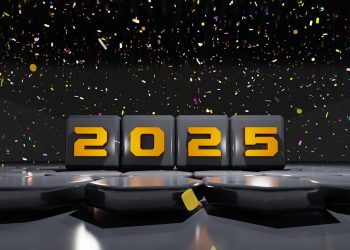No products in the cart.
The AI Revolution: A Wake-Up Call for Gen Z
The rise of AI is reshaping the job landscape, posing both risks and opportunities for Gen Z. Here's what they need to know to thrive.
The rapid evolution of artificial intelligence (AI) is rewriting the rules of work, and for Generation Z, the stakes have never been higher. As the CEO of a leading skill training firm recently warned, the hidden risks of not adapting to this seismic shift could leave many young professionals stranded on the sidelines of an ever-changing job landscape.
Imagine standing at the edge of a digital cliff, watching as traditional jobs tumble into the abyss, replaced by algorithms and automated systems. This is the reality that faces today’s youth. AI is not just a buzzword; it’s a relentless force reshaping industries—from healthcare to finance, and even creative arts. The message is clear: adapt or be left behind.

According to a recent report by the World Economic Forum, over 85 million jobs may be displaced by 2025 due to AI and automation, while 97 million new roles could emerge, demanding a different set of skills[1]. For Gen Z, this is a double-edged sword. On one hand, there are opportunities for innovation and creativity; on the other, the risk of being unprepared looms large.
Consider the story of Maya, a 23-year-old recent graduate in marketing. She spent years honing her skills in traditional advertising. However, as she entered the job market, she quickly realized that employers were looking for expertise in AI-driven analytics and digital marketing strategies. “I felt like I was playing catch-up,” Maya admitted. “The skills I thought would land me a job became obsolete almost overnight.”
As the landscape shifts, so too must the approach to education and skill development.
This sentiment is echoed by many in her generation. The CEO of the training firm warned that while Gen Z is often labeled as tech-savvy, there is a significant gap in understanding the complexities of AI and its applications in the workplace. “It’s not enough to know how to use a smartphone or social media,” he said. “Understanding the underlying technologies and their implications is crucial.”
As the landscape shifts, so too must the approach to education and skill development. Traditional learning models are being challenged. Educational institutions are scrambling to adapt curricula to include AI literacy, data analysis, and critical thinking—skills that are becoming essential in a tech-dominated job market.
However, it’s not just about formal education. The rise of online platforms and micro-credentials offers a new avenue for skill acquisition. Platforms like Coursera and Udacity are providing bite-sized courses that allow individuals to upskill quickly and efficiently. For those like Maya, these resources can be a lifeline.
But the responsibility doesn’t lie solely with educational institutions or tech companies. Companies themselves must also take proactive steps to ensure their workforce is prepared for the future. This means investing in continuous learning and development programs that prioritize adaptability and innovation.
As we navigate this new terrain, it’s important to highlight the stories of those who are thriving in this evolving environment. Take Alex, a 26-year-old data analyst who embraced the AI wave. “I realized early on that AI was going to be a game-changer in my field,” he shared. “I took courses in machine learning and data science, and now I lead projects that integrate AI into our analytics.” His proactive approach not only secured his position but also put him ahead of the curve.
Yet, there remains a darker side to this transformation. The rapid pace of change can be overwhelming, leading to anxiety and uncertainty among young workers. A recent survey found that nearly 60% of Gen Z respondents expressed concern over their job prospects in an AI-dominated world[2]. This fear is compounded by the pressure to constantly learn and adapt, creating a cycle of stress that can be detrimental to mental health.
Companies themselves must also take proactive steps to ensure their workforce is prepared for the future.
Moreover, there are ethical considerations that must be addressed. As AI continues to permeate workplaces, questions arise about bias in algorithms, job displacement, and the future of human labor. Gen Z will need to advocate for transparency and ethical practices in AI development, ensuring that technology serves humanity, not the other way around.
Looking forward, it’s clear that the relationship between AI and the workforce will only deepen. The ability to pivot, embrace change, and continuously learn will be the hallmarks of success in this new era. For Gen Z, the challenge is not merely about survival; it’s about seizing the opportunities that AI presents.
In a world where change is the only constant, the future belongs to those who are willing to adapt. As Maya continues her journey, she is determined to embrace the challenges ahead. “I may have started behind the curve, but I’m not going to let that define me,” she said. “I’m ready to learn, grow, and make my mark.”











